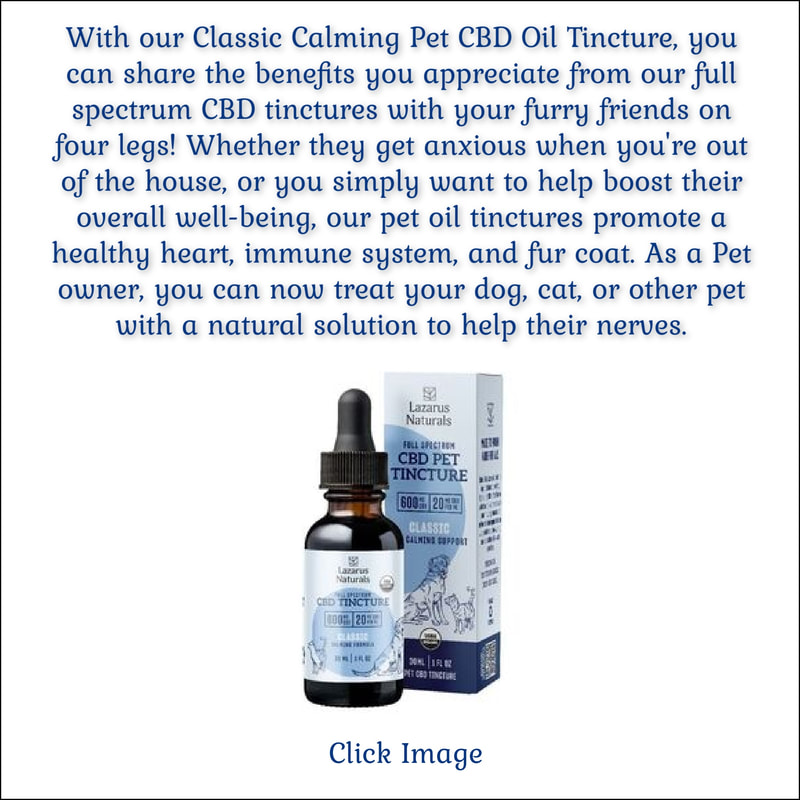
By Natural Dog Health Remedies
Just like Alzheimer's disease in people, canine cognitive dysfunction affects mostly older dogs. It is the age-related deterioration of cognitive abilities characterized by behavioral changes in dogs not caused by a particular physical health problem or reaction to medication.
The exact cause of this syndrome is not clearly known. However, it appears that physical and chemical changes in the dog's body affect the brain function of the dog. Microscopically, it has been found that dogs with cognitive dysfunction have abnormal protein accumulations in their brain, and blood vessels of the brain become visible. Ultimately, these abnormal brain conditions interfere with proper nerve transmission, resulting in behavioral changes in the older dogs.
In a pet owner study, nearly half of all dogs aged 8 years and older showed at least one sign of canine cognitive dysfunction syndrome. Other studies showed that 48% of dogs 8 years and older, 62% of dogs 11-16 years old, and 100% of dogs 16 years of age and older showed at least one sign of CCD.
Just like Alzheimer's disease in people, canine cognitive dysfunction affects mostly older dogs. It is the age-related deterioration of cognitive abilities characterized by behavioral changes in dogs not caused by a particular physical health problem or reaction to medication.
The exact cause of this syndrome is not clearly known. However, it appears that physical and chemical changes in the dog's body affect the brain function of the dog. Microscopically, it has been found that dogs with cognitive dysfunction have abnormal protein accumulations in their brain, and blood vessels of the brain become visible. Ultimately, these abnormal brain conditions interfere with proper nerve transmission, resulting in behavioral changes in the older dogs.
In a pet owner study, nearly half of all dogs aged 8 years and older showed at least one sign of canine cognitive dysfunction syndrome. Other studies showed that 48% of dogs 8 years and older, 62% of dogs 11-16 years old, and 100% of dogs 16 years of age and older showed at least one sign of CCD.
Signs and Symptoms of Canine Cognitive Dysfunction
The top most common signs and symptoms of CCD include:
The top most common signs and symptoms of CCD include:
- Sleeping a lot, especially during daytime.
- Showing a loss of appetite - the dog may even lose interest in his favorite foods or treats.
- Becoming lethargic and unwilling to socialize, play, or go outside.
- Having problems regarding elimination - though fully house-trained, the dog frequently eliminates in inappropriate places in the house.
- Staring at the wall or into space and is easily startled by sounds (e.g. from TV, or children playing).
- Showing signs of restlessness, e.g. pacing, wandering around aimlessly.
- Showing signs of aggression even towards family members and friends because the dog cannot recognize them anymore.
- Showing signs of disorientation - the dog may appear lost or confused in familiar places such as own house or yard; may get stuck in corners or under/behind furniture.
The dog may appear deaf because he does not respond to his own name or learned commands. He may also have difficulty learning new commands and tricks.
Natural Remedies for Canine Cognitive Dysfunction
Quite a few herbs and nutritional supplements can be used to help prevent and improve CCD. They include:
Choline
Choline is an organic compound, classified as a water-soluble essential nutrient and is usually grouped within the Vitamin B complex. Choline is a "building block" needed to produce the neurotransmitter acetylcholine, responsible for mediating brain functions such as memory, intelligence and mood. A deficiency in acetylcholine is believed to be a contributing factor in senility in general and Alzheimer's disease in particular. A clinical study has found that choline supplementation was effective for reversing signs of cognitive dysfunction in both dogs and cats. Recommended dosage is 50 to 100 mg daily for a 50-pound dog.
Ginkgo
The herb ginkgo is widely considered as an "anti-aging herb". It has proved effective in treating Alzheimer's disease in both people and canine. Ginkgo enhances both long-term and short-term memory in puppies and senior dogs alike.
Rosemary
Rosemary is another effective herb that can help prevent the breakdown of acetylcholine in the brain.
In addition, rosemary is an important antioxidant.
Bacopa
Commonly known as Waterhyssop, bacopa is an Ayurvedic herb and has been used for a long time in India as a brain tonic to enhance memory and concentration.
Quite a few herbs and nutritional supplements can be used to help prevent and improve CCD. They include:
Choline
Choline is an organic compound, classified as a water-soluble essential nutrient and is usually grouped within the Vitamin B complex. Choline is a "building block" needed to produce the neurotransmitter acetylcholine, responsible for mediating brain functions such as memory, intelligence and mood. A deficiency in acetylcholine is believed to be a contributing factor in senility in general and Alzheimer's disease in particular. A clinical study has found that choline supplementation was effective for reversing signs of cognitive dysfunction in both dogs and cats. Recommended dosage is 50 to 100 mg daily for a 50-pound dog.
Ginkgo
The herb ginkgo is widely considered as an "anti-aging herb". It has proved effective in treating Alzheimer's disease in both people and canine. Ginkgo enhances both long-term and short-term memory in puppies and senior dogs alike.
Rosemary
Rosemary is another effective herb that can help prevent the breakdown of acetylcholine in the brain.
In addition, rosemary is an important antioxidant.
Bacopa
Commonly known as Waterhyssop, bacopa is an Ayurvedic herb and has been used for a long time in India as a brain tonic to enhance memory and concentration.
Gotu Kola
This is a traditional herb of both Chinese and Ayurvedic medicine, and has antioxidant properties that can protect the body from damage by free radicals. It is particularly useful for memory problems and stress-related disorders.
Vitamin B6
Vitamin B6 has antioxidant properties because it inhibits free radical production.
Resveratrol
Resveratrol is a type of polyphenol. Polyphenols are antioxidants that protect cells against damage from free radicals and therefore have anti-aging properties.
Flaxseed Oil
Flaxseed oil is beneficial for older dogs as it is an excellent source of Omega-3 fatty acids, the "good fats" that have anti-inflammatory properties and can reduce cholesterol and prevent blood clots.
This is a traditional herb of both Chinese and Ayurvedic medicine, and has antioxidant properties that can protect the body from damage by free radicals. It is particularly useful for memory problems and stress-related disorders.
Vitamin B6
Vitamin B6 has antioxidant properties because it inhibits free radical production.
Resveratrol
Resveratrol is a type of polyphenol. Polyphenols are antioxidants that protect cells against damage from free radicals and therefore have anti-aging properties.
Flaxseed Oil
Flaxseed oil is beneficial for older dogs as it is an excellent source of Omega-3 fatty acids, the "good fats" that have anti-inflammatory properties and can reduce cholesterol and prevent blood clots.

















